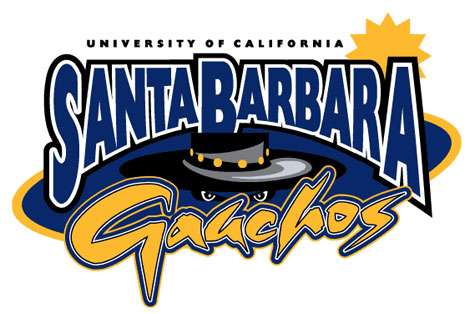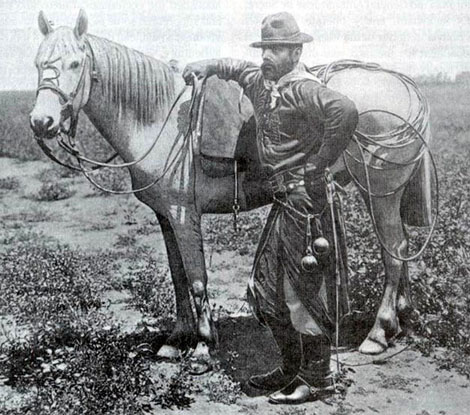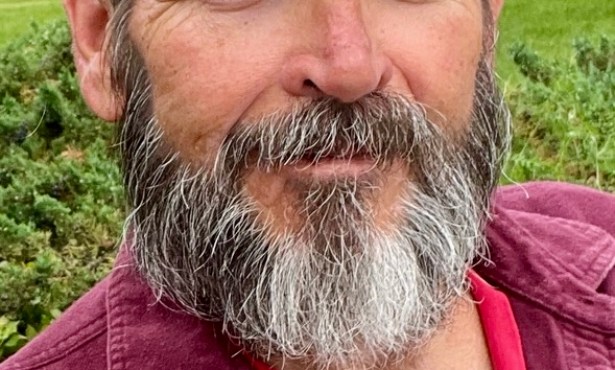Ole, Ole, Ole
Despite Student Obliviousness, Gauchos Win the Mascot Melee

The game was intense, with both teams pushing themselves, and each other as hard as humanly possible. The court was a blur of orange and white, as giants ran from one side to another with a finesse that seems out of place coming from someone so big. Sweat dripped in rivulets down tightly-pinched faces, coaches and assistants came out of the woodwork to rub cramps out of tree-trunk triceps and the sea of blue-clad fans fought their damnedest to be a part of what was arguably the biggest thing to happen to Tennessee in a long, long time.
The occasion was the Memphis-Tennessee game last Saturday, in which the number one and number two ranked teams in the NCAA battled it out on the basketball court for the first time all season. The team mascots? The terrifying-sounding Memphis Tigers and the not-so-terrifying Tennessee Volunteers. That’s right. The Volunteers.
When it comes to college sports, mascots mean a lot. They’re the face of the school, the impetus for countless costumes and crazy stunts and the only thing that stays constant in a sports culture that changes its rosters every four years or less. In the UC system alone, there’s a banana slug, an anteater, the aggies, a bobcat, a triton, two variations on the bear and UCSB’s very own mighty Gaucho. Clearly, when the folks in charge were thinking about mascots, they wavered a bit in terms of ferocity. Not to knock the banana slug or anything, but I’d hate to see what a Golden Bear could do to the poor thing in a contest of might, not to mention the possibilities should said slug ever have to face down an anteater.

On the other side of the spectrum, the Gaucho is actually a pretty badass guy. Yet many UCSB students don’t even know who – or what – the gaucho really is. According to the Wikipedia entry for “Gaucho,” the term was coined to describe the people who populated South American grasslands in Argentina, Uruguay, Chile and Brazil. In the 19th century, the Gauchos were rural folks whose lifestyles most closely resembled what we know now as “cowboys.” The Gauchos were also a symbol of independence, particularly in Argentina, where they were regarded as populist heroes and champions of Argentina’s national identity. As Wikipedia puts it, Gauchos have a reputation for being “strong, honest, silent types, but proud and capable of violence when provoked.” According to the UCSB Athletics website, “UCSB adopted the Gauchos mascot in 1934, after having originally been nicknamed the Roadrunners. The Gaucho was known to be a liberty loving cowboy of the South Americas, combining the qualities of both Mexican and Indian heritages. The Gaucho was a colorful character, known for occasional rebel-rousing, but always respected.”
So, to sum up, the Gaucho is a South American cowboy with a reputation for being the strong, silent type. The Gaucho loves his independence, is willing to fight to defend his honor and isn’t above a little carousing when the occasion calls for it. The Gaucho, as the UCSB Athletics organization renders him, never goes anywhere without his trademark mask and hat, his piercing pupils reminding potential challengers that he is not a man to be messed with. The Gaucho is a fan of liberty, a champion of national identity and one of the few men who can pull of a bejeweled, wide-brimmed accessory while still maintaining his manly composure.
Put simply, the Gaucho is fierce. And while we Gauchos may not play many games that get the kind of national attention that last Saturday’s showdown garnered, I think it’s pretty obvious who would win in a battle between the mighty Gaucho and the hind-sniffing hound dog Tennessee adopted as the official Volunteers mascot.
Of course, the Gaucho isn’t one to flaunt his fierceness, and he certainly wouldn’t want to throw down against a poor, little puppy, so that sort of showdown is probably pretty far from feasible. But, suffice it to say, the Gaucho is a pretty cool cowboy.
And that’s something worth ole-ing for.



